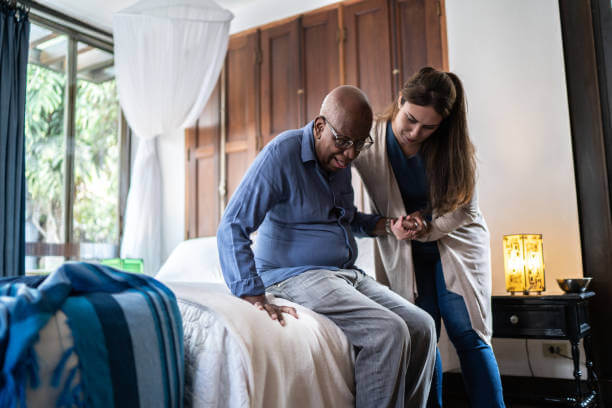One of the first questions a senior will ask when needing additional care services is: what duties does a Certified Nursing Aide perform?
My answer is always that the Certified Nursing Aide is the person who performs the “hands-on” care in a nursing home or in hospitals.
The department of public health in each state creates their own nursing aide certification guidelines. Schools must receive approval to offer a Certified Nursing Aide program and nursing aides working in licensed nursing facilities must be certified.
There are many little details for providing care which can make a huge difference in the quality of the care – nursing aides learn these details as a student in a nursing certification program.
Skills include: transfers, bathing, dressing, bed pan and catheter care, range of motion exercises, checking vital signs, decubitus ulcer care (bed sores), feeding tube, oxygen tank, hearing aide care, understanding age-related medical conditions and how to interact with a variety of patient personalities (including combative patients). Making sure sanitary conditions are always maintained are also taught.
Tuition for Certified Nursing Aide training is usually from $500 to $1,000 and many times reimbursement is available through employee programs at nursing centers and hospitals or through city or state incentive programs.
Harold Washington College, a city community college in Chicago, Illinois, charges a $629 tuition fee for their Certified Nursing Aide program. The Spring semester runs from January 19th and runs for 12 or 13 weeks depending on if it is the day or evening program. The day program meets Mondays and Wednesdays from 8am to 4pm and the evening program meets Thursdays and Fridays from 4pm to 9pm.
Upon completion of the course, students take the state exam and then may begin working as a Certified Nursing Aide.







